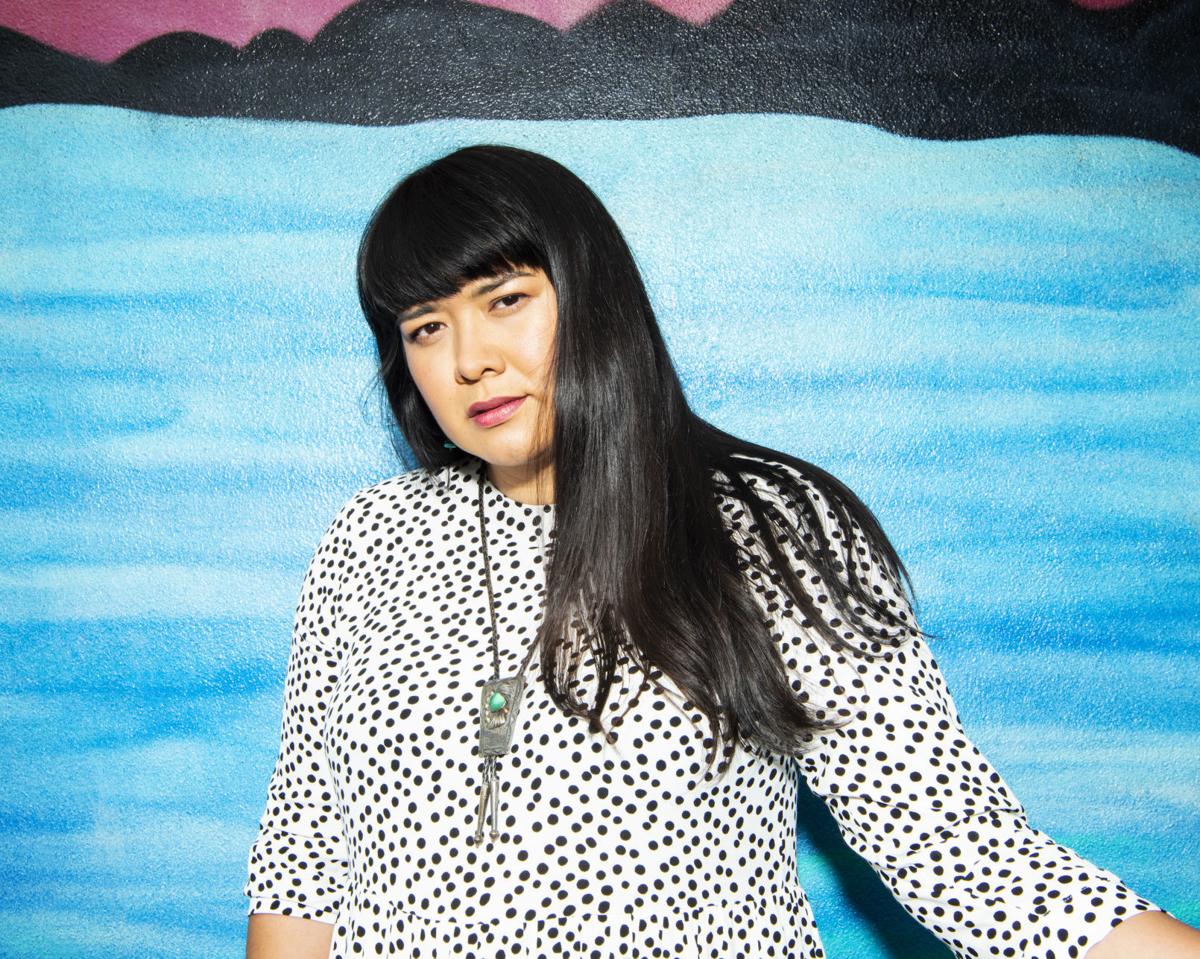Katherine Paul, known on stage as Black Belt Eagle Scout, has been exposed to music for as long as she can remember.
Paul was raised by the Swinomish Nation, a Native American community in northwest Washington.
She grew up with the traditional music of the Coast Salish people and took piano lessons, but it was a pop singer playing over the radio in the car one day that really piqued her interest.
“I found out it was Madonna and I was like, ‘I love Madonna,’ ” said Paul, who performs at Club Congress on Saturday. Nov. 16.
Her mother soon bought her Madonna CDs and changed Paul’s life.
“I think that was the first time that I realized that I liked music,” she said.
Paul eventually found herself participating in the DIY music scene at the nearby town of Anacortes and in an organization called the Rock ‘N’ Roll Camp for Girls.
She wanted to learn guitar at the camp, but she was assigned to the drums.
Paul said learning how to drum made her realize that she could be a multi-instrumentalist and everything else came naturally to her, including the production aspects of recording music.
“At the Party with My Brown Friends” is Paul’s second album as Black Belt Eagle Scout.
She wrote, produced and played the instruments on the album, released earlier this year on Saddle Creek Records.
According to Paul, the album focuses on friendships, relationships and the important people in her life.
One song, “You’re Me and I’m You,” focuses on Paul’s “love and admiration” of her mother, who grew up in Alaska under inauspicious circumstances.
Her mother was part of a Canadian government program known as “The Sixties Scoop,” which took Native American children away from their families and adopted them into white families.
Despite this experience, Paul’s mother survived, reconnected with her culture and raised a family.
“I had a really great upbringing, and I go back and visit all the time,” said Paul, who resides in Portland, Oregon.
Paul first found a community of like-minded individuals in Portland who made music in the “house show punk” DIY scene before gentrification and noise ordinances pushed musicians into the club venues.
“I think that sort of opened up doors for all different types of music, definitely a lot of Indian music,” Paul said. “There was a bunch of these really amazing queer women, especially queer women of color that I have become friends with.”
Paul thinks her new album also sheds light on talking about one’s own community and on making connections wherever one goes in life.
“I love going to the Southwest because I see more people that look like me essentially,” she said.
Paul even notices more people of color are attending her shows, which she thinks is “awesome.”
Then sometimes she has met people who make microaggressive comments like “What you’re doing is so good for your people.”
“It’s just like, ‘OK.’ Like I know that,” she said.
Other times, she comes across a rare community of people who make comments on her band name.
“Actually there’s some people that have come to my shows that are like, ‘I am a black belt and I am an Eagle Scout,’ ” Paul said.
They are invited to the party as well.





